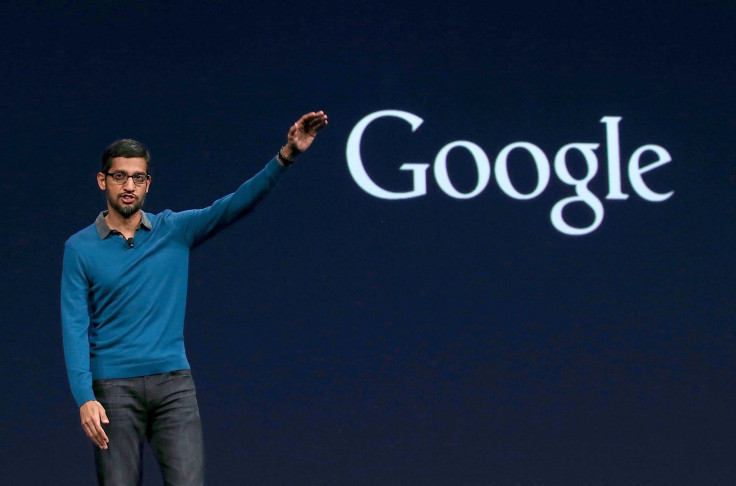Google CEO Happy With Internal Tests Of Censored China Search Engine

Google has received criticism from both in and outside of the company since its plans to develop a censored, government-friendly search engine for China leaked. During an interview with Wired at the tech magazine’s 25th-anniversary summit, Google CEO Sundar Pichai attempted to justify the efforts in a public forum.
According to Pichai, bringing Google search back to China would benefit the public by providing better information than what Chinese user currently receive. He cited the fact that users could find information related to cancer treatments as an example of how Google could serve China.
Google shut down its search engine in China in 2010 because it did not want to censor the site according to government regulations. The Intercept reported the existence of Google’s new, censored Chinese product in August, which Pichai downplayed as merely exploratory during an employee meeting weeks later.
According to Pichai, the initiative known as Project Dragonfly has been a success in Google’s internal testing.
“It turns out we'll be able to serve well over 99 percent of the queries,” Pichai told Wired.
Dragonfly is an Android app that would allow Chinese users to Google search without seeing anything the Chinese government finds objectionable. The Intercept reported that terms like “dissidents” and sites about the Tiananmen Square would be examples of banned queries.
China’s so-called “great firewall” prohibits internet users in the populous country from visiting major western news sources like the New York Times, as well as social networks like Facebook and Twitter. However, firms like Google and Facebook have developed other products and opened offices in the country despite the bans.
With a population of nearly 1.4 billion, Pichai acknowledged that China would be a valuable market for Google if it returned to the country.
“It's a wonderful, innovative market,” Pichai told Wired. “We wanted to learn what it would look like if we were in China, so that's what we built internally.”
Project Dragonfly inspired several Google employees to leave the company, either due to the nature of the project itself or the lack of transparency around it from upper management.
© Copyright IBTimes 2025. All rights reserved.



















